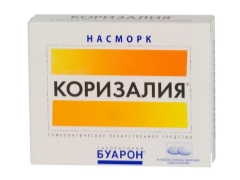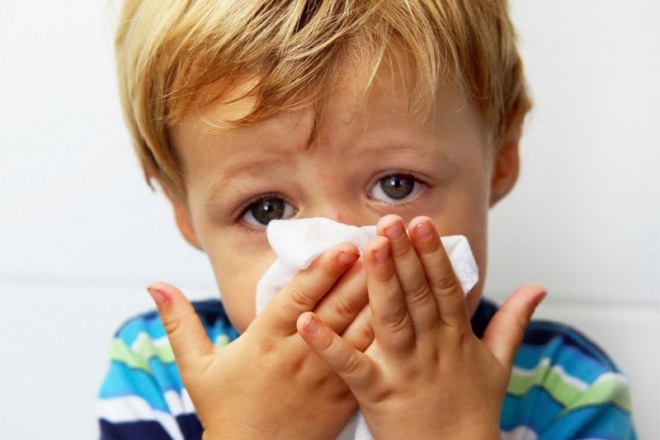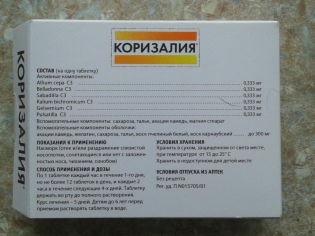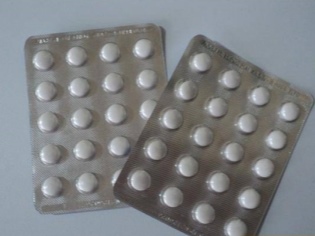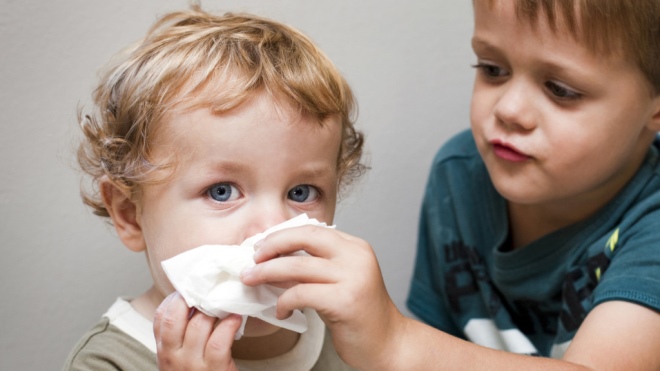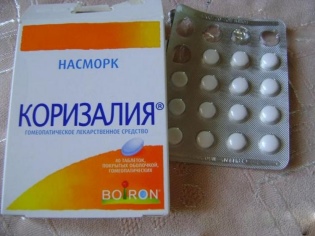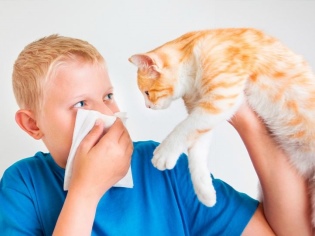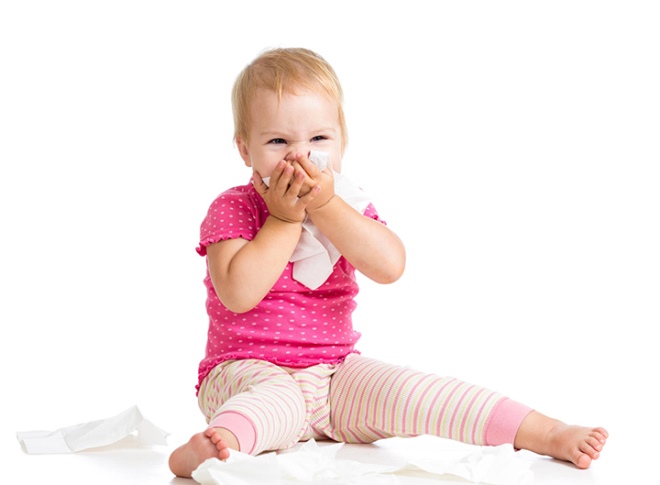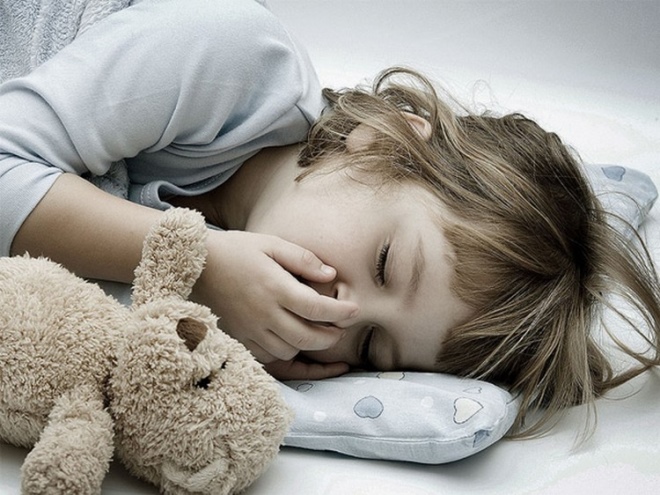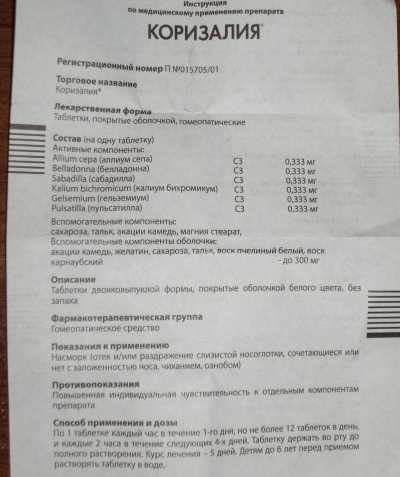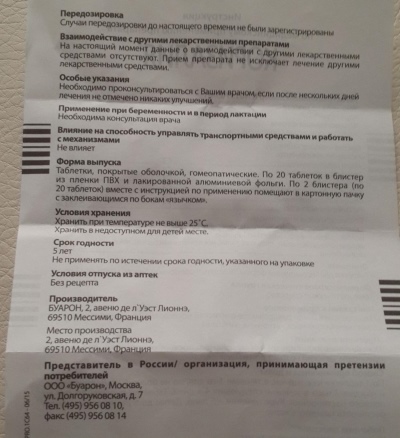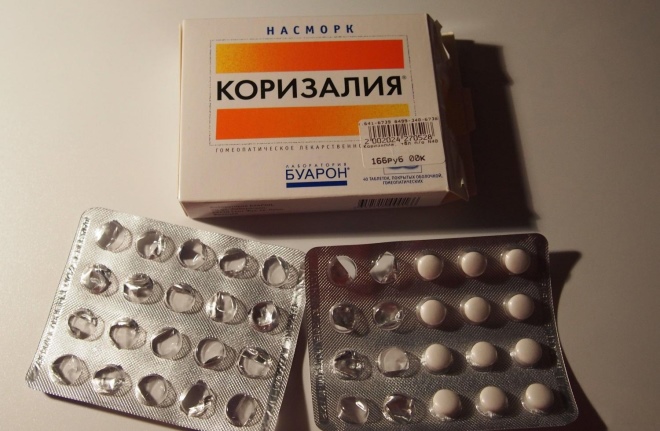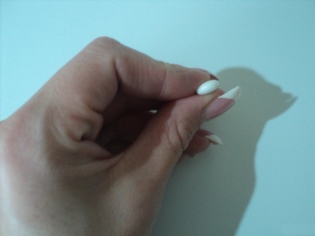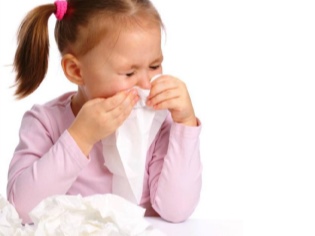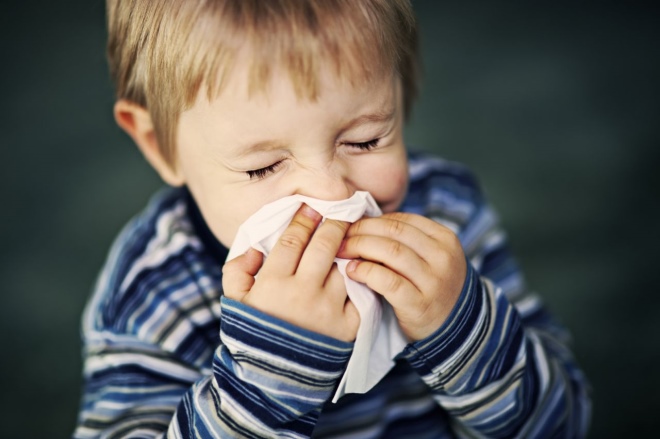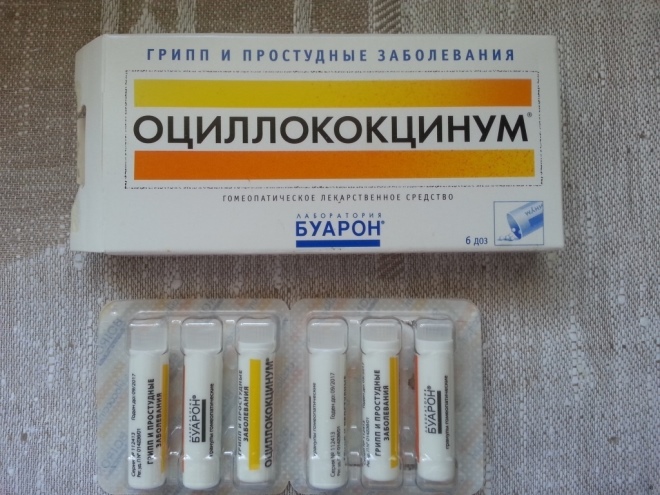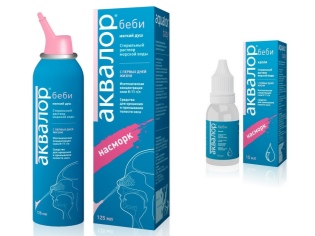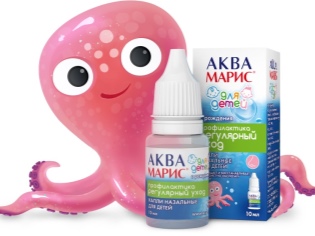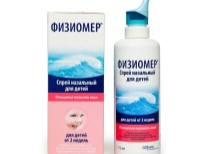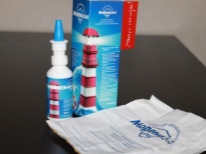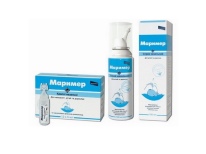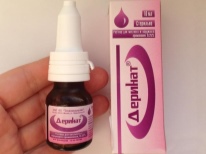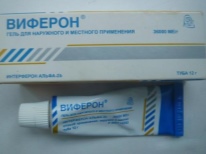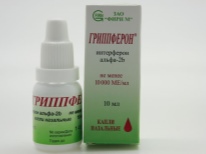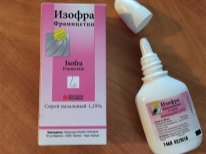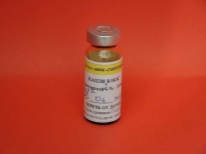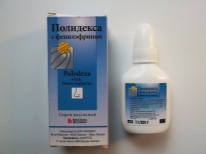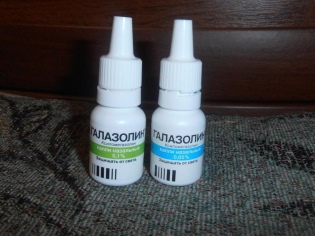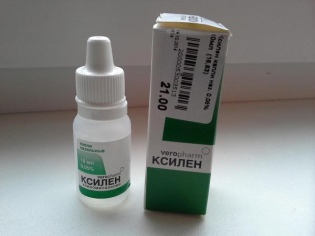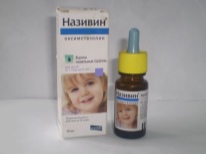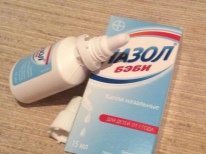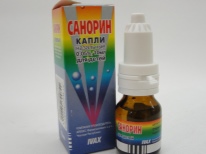Korizaliya for children: instructions for use
In the treatment of rhinitis, vasoconstrictor nasal drops are most often used, but sometimes homeopathic remedies are used, for example, Corisalia from French manufacturer Boiron. Parents choose this drug for a mild action and no side effects. But is this homeopathy allowed in childhood and when is it given to a child?
Release form and composition
Korizaliya is represented by tablets, including several components at once:
- Potassium bichromicum.
- Beladonna.
- Pulsatilla.
- Onions (allium sepa).
- Sabadilla.
- Gelzemium.
All these substances are contained in a single tablet in a dilution of C3 at a dosage of 0.333 mg. Additionally, ingredients such as white beeswax, talc and gelatin are added to the preparation. The tablets also have carnauba wax, acacia gum and sucrose.
The tablets themselves have a shape that is convex on both sides and a white sweet shell, and they have no odor. The product is packed in plates of 20 pieces each, and one box includes 40 tablets (two blisters).
Operating principle
Korizaliya components reduce the activity of the inflammatory process in the mucous membrane of the nasopharynx, as a result of which they reduce the severity of rhinorrhea (nasal discharge), help eliminate sneezing, redness, itching, swelling and other symptoms of rhinitis.
Indications
Coriumia is recommended to take from a cold, manifestations of which are sneezing, nasal congestion, swelling of the mucous membrane, chills and other symptoms.
Most often, the drug is prescribed for acute respiratory infections, the cause of which was a viral infection. This homeopathy is also used for allergic rhinitis, prescribing it together with anti-allergy medications. With adenoiditis, these tablets are not prescribed.
From what age is prescribed?
Korisalia is not contraindicated at any age, that is, such a homeopathic medicine is allowed to give to children from birth. It is considered safe for infants up to a year, and even for newborns.
However, a doctor must prescribe a remedy to children under 2 years of age. Giving pills without consulting a pediatrician is not advised to such small patients.
Contraindications
The tool is not used in children who have hypersensitivity to any ingredient of the tablets.
In addition, Korizaliya is not prescribed for glucose and galactose malabsorption syndrome, for lack of isomaltose and sucrose, as well as for fructose intolerance. Such contraindications are associated with the presence of sucrose in the formulation.
Side effects
In some young patients, Korizaliya provokes an allergic reaction. Other negative effects during taking pills are not observed.
Instructions for use
- A child 6 years and older is offered to keep a pill in the oral cavity (under the tongue) so that it dissolves completely. It is not necessary to divide it into parts or to grind it in another way.
- Children younger than six years old drug is dissolved in a small amount of water. This is recommended immediately before taking the pill.
- On the first day of illness, the child is given one tablet of Korizaliya every hour, but within one day more than 12 pieces should not be absorbed. Then for four days, the remedy is given at intervals of 2 hours. If the condition improves rapidly, you can take 1 tablet 3 to 4 times a day.
- To maximize the therapeutic effect of the tablets, it is not recommended to eat or drink anything within half an hour before resorption and about 30 minutes after taking the drug.
- Duration of Korizaliya is 5 days. If during this time the runny nose has not passed and the condition has not begun to improve, the manufacturer recommends re-seek medical attention.
Overdose and drug interactions
Cases of an overdose of Korizaliya during the existence of such a tool on the market have been noted. The manufacturer claims that taking pills does not have any toxic effect, even if their dose is more than the recommended.
Korizaliya can be combined with any other means to help with rhinitis. For example, if a runny nose is caused by an allergic reaction, tablets are combined with the use of antihistamine drugs.
If rhinitis has a bacterial nature, the drug can be combined with antibiotics, including local forms in the nose. No negative interactions of the components of the tablets with other drugs in the annotation is not marked.
Terms of sale and storage
- There are no difficulties with the purchase of the drug, because Korizaliya does not apply to prescription drugs. On average, the price of one pack of 40 tablets is 240-270 rubles.
- Store the tool at home is recommended at room temperature (from +15 to +25 degrees Celsius). For storage, you should choose a place hidden from the sun and moisture where tablets will not reach the small children.
- Korizaliya shelf life is 5 years. If it has expired, giving pills to kids is prohibited.
Reviews
On the use of Korizaliya with a cold there are different reviews. In some, the remedy is praised and noted that it effectively eliminates the symptoms of rhinitis, is not addictive and convenient to use. In others, they complain that the pills did not bring any improvement and the runny nose lasted as long as without treatment.
Among the advantages of this homeopathic remedy, mothers note the following nuances:
- Tablets are sweet and do not cause a protest in most babies.
- They can be given to those children who absolutely refuse any medication in the nose.
- They do not constrict blood vessels and do not provoke headaches, which are often noted when using vasoconstrictor drops.
- The drug has no age restrictions.
- Side effects from the use of pills are extremely rare.
With regard to the shortcomings, in most cases, parents talk about the high cost, the need for very frequent reception or no effect. Allergy to pills is detected only in isolated cases.
Doctors also treat Korizaliya differently. Some experts call pills effective and are often prescribed to young patients, others consider all homeopathic remedies ineffective and assert that micro doses of active substances are unable to influence the disease in any way.
Analogs
Replacing Korizaliya can be other homeopathic remedies prescribed for SARS. For example, it may be a product from the same manufacturers Oscillococcinum. It comes in the form of doses, is allowed from birth and is used for SARS or a cold.
The smallest patients with rhinitis as an analogue of Korizaliya can be prescribed funds based on sea water - Aqualore, Aqua-Maris, Physiomer, Morenazal, Marimer and others.
With prolonged rhinitis, medications are used that strengthen local immunity, for example, Derinat drops, Viferon gel or Grippferon drops.
If a child has bacterial rhinitis, a spray is usually prescribed instead of Korizaliya. Isofra (children older than a year), drops Protargol (from birth) or spray Polydex (from 2.5 years).
In severe rhinorrhea, vasoconstrictor preparations are used, for example, Galazolin, Xylen, Nazol, Nazivin, Sanorin, Farmazolin.
Each of them has its own contraindications and age restrictions, therefore, it is necessary to choose such a medicine for a child together with a doctor.
Opinion of Dr. Komarovsky on homeopathic remedies in the next video.
For general information, we invite you to look at the release of Doctor Komarovsky about the childhood rhinitis, causes and treatment.
